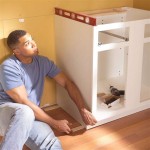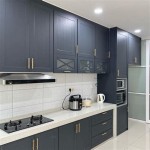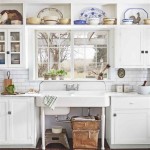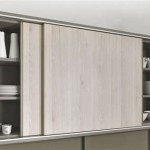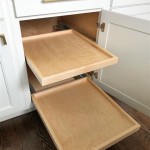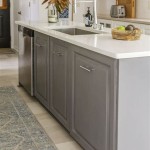Kitchen Cabinets Resurfacing Do It Yourself: A Comprehensive Guide
Kitchen cabinets play a pivotal role in enhancing the functionality and aesthetic appeal of your kitchen. If your cabinets are starting to show signs of wear or you're simply craving a fresh look, resurfacing is a cost-effective alternative to replacing them altogether. Here's a comprehensive guide to help you tackle the project yourself.
Step 1: Preparation
Meticulous preparation is paramount for a successful resurfacing project. Start by removing all hardware and doors from the cabinets. Clean the surfaces thoroughly with a degreasing cleaner to remove dirt and grease. Use sandpaper to lightly sand down the cabinets, creating a smooth base for the new finish.
Step 2: Choose Your Finish
Next, decide on the desired finish for your cabinets. Popular options include paint, laminate, or veneer. Each material offers unique advantages and drawbacks. Paint provides a wide range of colors and finishes, while laminate is durable and easy to clean. Veneer, made from thin slices of wood, offers a more natural look.
Step 3: Apply the Finish
Applying the finish is the heart of the resurfacing process. For paint, use a high-quality primer before applying multiple coats of paint. Make sure to let each layer dry completely before applying the next. For laminate, cut the material to size and apply it to the cabinets using contact cement. Veneer requires more skill and specialized tools to install.
Step 4: Reinstall Hardware and Doors
Once the finish has cured, it's time to reinstall the cabinet doors and hardware. Align the doors carefully and tighten the hinges securely. Choose handles and knobs that complement the new finish and enhance the overall look of your kitchen.
Step 5: Care and Maintenance
To preserve the beauty and longevity of your newly resurfaced cabinets, proper care and maintenance are crucial. Clean the surfaces regularly with a mild cleaner and avoid using harsh chemicals. Avoid placing hot cookware directly on the cabinets and use coasters to protect them from spills.
Tips for a Successful Kitchen Cabinets Resurfacing Project
- Take your time and don't rush the process.
- Mask off areas around the cabinets to prevent overspray.
- Use a high-quality finish and apply it properly.
- Allow ample time for each layer to dry before applying the next.
- If you're not confident in your DIY skills, consider hiring a professional.
Resurfacing your kitchen cabinets is a transformative project that can revitalize the look of your kitchen without breaking the bank. By carefully following these steps and paying attention to detail, you can achieve professional-looking results and enjoy a fresh, updated kitchen for years to come.

Diy Cabinet Refacing Budget Friendly Made Easy Wisewood

Diy Cabinet Refacing Budget Friendly Made Easy Wisewood

How Do I Prepare My Kitchen For A Cabinet Refacing Project

How To Resurface Kitchen Cabinets 2024 Guide Forbes Home

Cabinet Refacing Ideas Diy Projects Craft How To S For Home Decor With

Painted Furniture Ideas Diy Refacing Kitchen Cabinets

Diy Kitchen Cabinets Makeover How To Install New Cabinet Glass Inserts

Cabinet Refacing Ideas Diy Projects Craft How To S For Home Decor With

Kitchen Cabinet Refacing The Happy Housewife Home Management

Cabinet Refacing Process And Cost Compared To Painting
Related Posts

